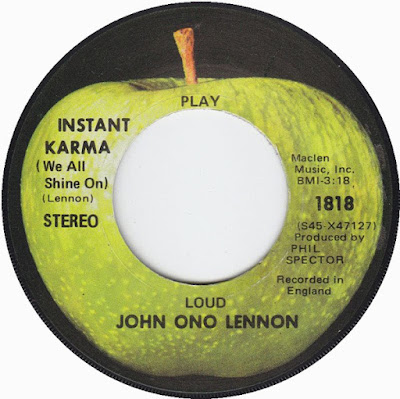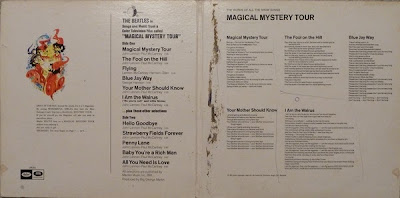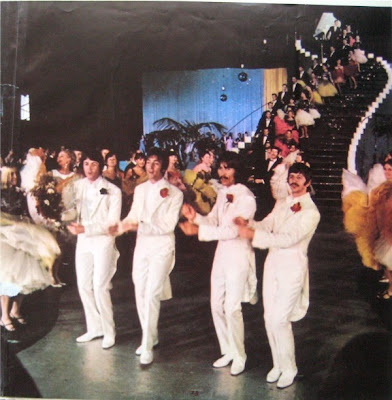Online I have been chatting away about the subject matter of Lennon and McCartney songs and the aspect that both of them have (or had in John's case) an incredible amount of craft in getting from point A to B. That alone is almost if not on a genius level. What they do lack in their solo career work is a lack of passion or doing things by the number, which again, in the hands of these two, that alone can be awarding experience. For me, the solo work of both one time Beatle members is that without the inspiration or passion, their work suffers greatly. On the other hand, both had or has a very long career in the music writing business. There will be the dips and heights, and one should acknowledge that, even if they are heroes of some sort. "Chaos and Creation in The Backyard" strikes me as a Paul masterpiece. For one, I can feel the sadness that wraps around the voice and melodies. There are albums such as Lennon's "Plastic Ono Band" that hits your heart and head in an equal manner, due to its frankness and skills of putting a great collection of songs together for an album. "Chaos and Creation" is such an album where it was either the right series of moments or a reflection that McCartney was going through at the time; nevertheless, this all added up to a superb album.
McCartney chose to work with people who were sympathetic to his heritage as well as the 'Paul' sound. Produced by long-term Radiohead producer Nigel Godrich, shows a respectful but a strong hand in getting that sound perfectly, and with the addition of Joby Talbot, who worked with Divine Comedy" doing some of the string arrangements was an excellent choice as well. Talbot is the contemporary walking version of Baroque Pop sounds. He did remarkable work with Divine Comedy, and his light touch on the arrangements is very sympathetic to the McCartney aesthetic. Paul had outside help, but it's mostly him on most of the instrumentation on the album, and it doesn't have the first solo album feel, but still, when he's devoted to a recording, it comes clear that he is working fully with his talent and vision.
McCartney is very much a collaborative artist. Still, he sometimes falls behind the wrong people in recordings, especially in his solo years. Godrich, I think pushed him for excellence, and I have read that their relationship was tense, or that could be just gossip. What I do hear is an artist who is pushing himself in a manner that is frank, but skilled with brilliant musical skills and chops to convey a world that is sad and reflective. In other words, "Chaos and Creation" is very much a middle-aged man's type of record. Not far off from Frank Sinatra's brilliant "September of My Years." It's an album of deep feeling but with the light and upbeat melodies of songs such as "Fire Line," "Promise To You Girl," or the beautiful rumba ballad "A Certain Softness." There is a range of feelings, but all of them looking back in a manner that comes with age and experience. Some sections remind me of The Beatles "Revolver" where I feel certain songs "Promise To You Girl" or "A Certain Softness" comes to mind, that would fit perfectly in that Beatle album. This is not nostalgia, but an artist working with what he has, which of course, is remarkable. At the moment in my life, this is my favorite Paul McCartney album.

















































